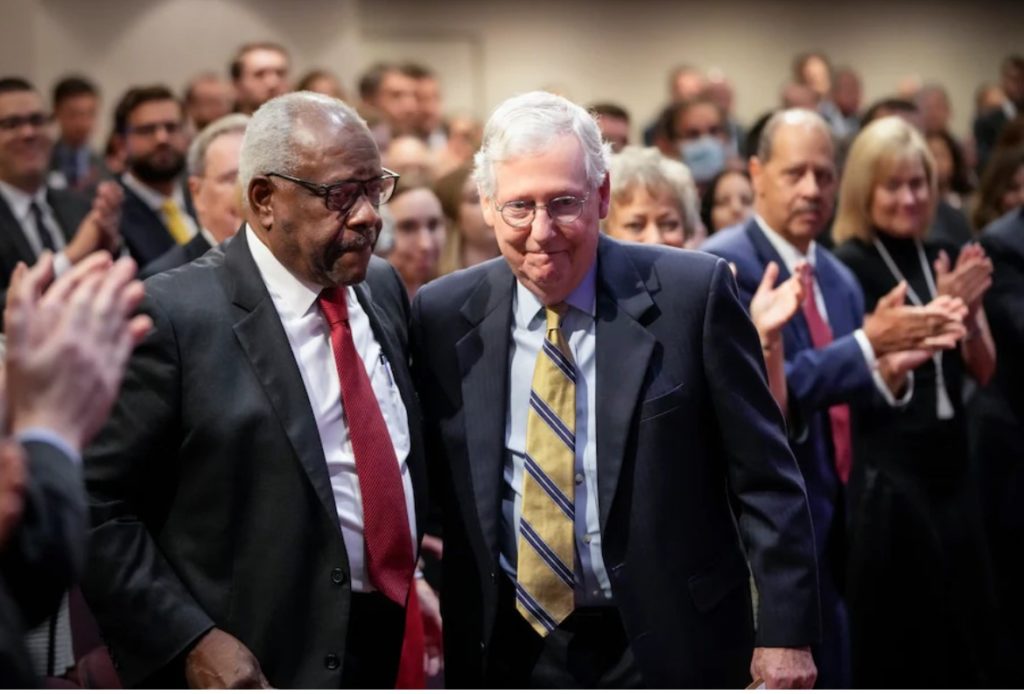Power without accountability

Jamelle Bouie puts Clarence Thomas’s unapologetic corruption in a broader context:
And while several Democrats, most notably Representative Alexandria Ocasio-Cortez, have called for investigations and even impeachment, there’s no real expectation that Thomas will even answer questions about his conduct, much less face consequences for it. He is still as free as he’s ever been to treat his seat on the court — ostensibly a public trust — like a winning lottery ticket, to redeem with the nearest friendly billionaire (who happens to have a collection of Nazi paraphernalia and Hitler-related souvenirs).
Last year, in the wake of a different Supreme Court ethics scandal — involving a sophisticated and well-funded influence operation aimed at Republican justices like Thomas and Samuel Alito — I wrote about the problem of lifetime tenure for judges and justices. The framers of the Constitution embraced service on “good behavior” because they wanted a truly independent judiciary, free from the corruption and venality of ordinary politics.
[…]
Turning his eye to the Supreme Court, the writer who called himself Brutus blanched at the power and authority that the Philadelphia convention entrusted in such a small group of men. “Every body of men invested with office are tenacious of power,” he wrote. “The same principle will influence them to extend their power, and increase their rights” and, he continued, “enlarge the sphere of their own authority.”
Taking aim at the other source of concentrated power in the proposed new government, the Senate, the Maryland antifederalist Samuel Chase complained that “its members are too few” and that its small size leaves it vulnerable to “bribery and corruption.”
“No free people ever reposed power in so small a number,” he said.
Although I can’t say for certain, it sounds like both Brutus and Chase are channeling Machiavelli’s observation that “the few always behave in the mode of the few.” Build an exclusive, oligarchical institution, and you’ll get an exclusive, oligarchical politics.
This has always been true of the Supreme Court — a reliable friend of property, capital and class rule throughout its 234-year history, occasional bouts of decency notwithstanding — but it has become an acute problem in this era of unchecked judicial supremacy. As the court arrogates more and greater power to itself, and grows both distant from and contemptuous of public opinion, it naturally attracts flatterers and intriguers.
With his close ties to a powerful, property-owning billionaire, Thomas embodies the historic role of the Supreme Court in American politics, not as a liberator or defender of the rights of political and social minorities, but as a partner to and ally of moneyed interests.
Had the framers known how the federal courts would evolve they might have been structured differently. But another choice made by the framers (Article V) makes making fundamental changes nearly impossible, so the only constraints on the Court are more extreme measures taken or credibly threatened that are going to require large majorities (like those that Jefferson and the Reconstruction Congress and the New Deal Democrats) that are going to be hard to attain.
